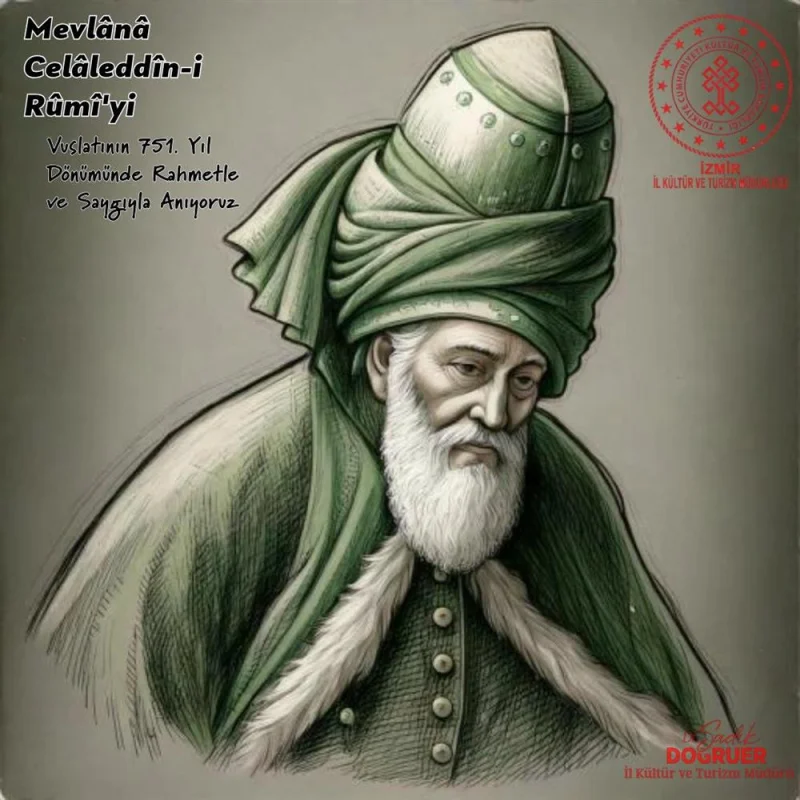Short Summary
Jalal ad-Din Muhammad Rumi, commonly known as Rumi, was a 13th-century Persian poet, theologian, and Sufi mystic. He is renowned for his profound spiritual influence and his extensive body of poetry, which explores themes of love, divine connection, and the human experience. Rumi's work has transcended time and culture, establishing him as one of the most widely read poets worldwide. His teachings continue to inspire countless individuals across diverse cultures and religions.
Early Life & Education
Rumi was born on September 30, 1207, in Balkh, present-day Afghanistan. His father, Baha ud-Din Walad, was a prominent scholar and mystic, whose teachings significantly influenced Rumi's early life. When the Mongols invaded Central Asia, Rumi's family fled, eventually settling in Konya, in present-day Turkey. Under his father's guidance, Rumi received a comprehensive education in religious sciences. After his father's death, Rumi continued his studies under his father's friend, Burhan al-Din, further solidifying his foundation in Islamic theology and Sufism.
Career Highlights
Rumi's career as a spiritual teacher and poet began to flourish after he met Shams of Tabriz, a wandering dervish who became his spiritual mentor and friend. This profound relationship led Rumi to compose many of his most famous works, including the "Divan-e Shams-e Tabrizi." Following Shams' mysterious disappearance, Rumi's spiritual journey deepened, resulting in the creation of the "Masnavi," a six-volume poetic epic considered one of the greatest works of mystical poetry. Rumi's teachings and poetry attracted disciples and followers, establishing him as a revered spiritual leader in his lifetime.
Major Achievements
- Authored the "Masnavi," a seminal work in Sufi literature, exploring themes of spirituality and unity with the divine.
- Established the Mevlevi Order, a Sufi order known for the practice of whirling dervishes, emphasizing music and dance as spiritual practices.
- Composed the "Divan-e Shams-e Tabrizi," a collection of lyrical poetry dedicated to his spiritual mentor, Shams.
Famous Quotes
- "The wound is the place where the Light enters you."
- "Do not be satisfied with the stories that come before you. Unfold your own myth."
- "Let the beauty we love be what we do."
Interesting Facts
- Rumi's poetry has been translated into numerous languages, making him one of the best-selling poets in the United States.
- His meeting with Shams of Tabriz is considered a turning point in his life, profoundly influencing his spiritual and poetic journey.
- Rumi's death anniversary is celebrated as "Seb-i Arus," meaning "The Night of Union," symbolizing his union with the divine.
- He is often viewed as a bridge between Eastern and Western cultures through his universal themes of love and spirituality.
Legacy / Influence
Rumi's legacy endures through his poetry, which continues to inspire individuals worldwide with its timeless wisdom and spiritual depth. His teachings have transcended cultural and religious boundaries, resonating with a global audience seeking spiritual enlightenment and connection. Rumi's influence extends beyond literature into music, art, and dance, particularly through the Mevlevi Order's whirling dervishes, which celebrate his teachings through their spiritual practice.
FAQ
Q: Why is Rumi famous?
A: Rumi is famous for his profound poetry and spiritual teachings that resonate across cultures and religions.
Q: What was the impact of Shams of Tabriz on Rumi?
A: Shams of Tabriz profoundly influenced Rumi's spiritual journey and inspired much of his poetry.
Q: What is the "Masnavi"?
A: The "Masnavi" is a six-volume poetic work by Rumi, exploring themes of spirituality and unity with the divine.










